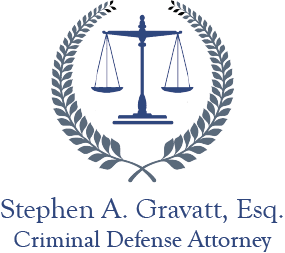HINDERING APPREHENSION OR PROSECUTION—N.J.S.A. 2C:29-3 Hindering NJ
If you have been charged with violation of 2C:29-3, if convicted, you could have exposure for up to 5 years jail time, monetary fines of up to $15,000,00, criminal record. In my 26 plus years practicing criminal law, I have handled many hindering apprehension and/or eluding cases. Please contact me at (732)-337-7922 for an evaluation of your circumstances and vigorous and competent defense.
ILLUSTRATIVE EXAMPLE OF WHAT CONDUCT CONSTITUTES THE OFFENSE: Your friend is operating his motor vehicle down the Garden State Parkway and you are riding “shotgun” in the passenger seat when he is signaled to stop by a State trooper. You are aware that there is an outstanding arrest warrant for you for failure to previously appear in municipal court as noticed for a prior criminal charge. You fear you will be arrested and incarcerated if the trooper knows your true identity. You give the trooper a false name and false information in efforts to avoid detection and arrest. Have you just committed the criminal offense of hindering your own apprehension?
HINDERING THE APPREHENSION OF ANOTHER
a. A person commits an offense if, with purpose to hinder the detention, apprehension, investigation, prosecution, conviction or punishment of another for an offense, or violation of Title 39 of the New Jersey Statutes or a violation of chapter 33A of Title 17 of the Revised Statutes he:
(1) Harbors or conceals the other;
(2) Provides, or aids in providing a weapon, money, transportation, disguise or other means of avoiding discovery or apprehension or effecting escape;
(3) Suppresses, by way of concealment or destruction, any evidence of the crime, or tampers with a witness, informant, document or other source of information, regardless of its admissibility in evidence, which might aid in the discovery or apprehension of such pe
rson or in the lodging of a charge against him;
(4) Warns the other of impending discovery or apprehension, except that this paragraph does not apply to a warning given in connection with an effort to bring another into compliance with law;
(5) Prevents or obstructs, by means of force, intimidation or deception, anyone from performing an act which might aid in the discovery or apprehension of such person or in the lodging of a charge against him;
(6) Aids such person to protect or expeditiously profit from an advantage derived from such crime;
(7) Gives false information to a law enforcement officer or a civil State investigator assigned to the Office of the Insurance Fraud Investigator established by section 32 of P.L. 1998, c. 21 (C.17:33A-16).
The offense is a crime of the third degree if the conduct which the actor knows has been charged or is liable to be charged against the person aided would constitute a crime of the second degree or greater, unless the actor is a spouse, parent or child of the person aided, in which case the offense is a crime of the fourth degree. The offense is a crime of the fourth degree if such crime would constitute a crime of the third degree. Otherwise it is a disorderly persons offense.
HINDERING ONE’S OWN APPREHENSION
b. A person commits an offense if, with purpose to hinder his own detention, apprehension, investigation, prosecution, conviction or punishment for an offense or violation of Title 39of the New Jersey Statutes or a violation of chapter 33A of Title 17 of the Revised Statutes, he:
(1) Suppresses, by way of concealment or destruction, any evidence of the crime or tampers with a document or other source of information, regardless of its admissibility in evidence, which might aid in his discovery or apprehension or in the lodging of a charge against him; or
(2) Prevents or obstructs by means of force or intimidation any one from performing an act which might aid in his discovery or apprehension or in the lodging of a charge against him; or
(3) Prevents or obstructs by means of force, intimidation or deception any witness or informant from providing testimony or information, regardless of its admissibility, which might aid in his discovery or apprehension or in the lodging of a charge against him; or
(4) Gives false information to a law enforcement officer or civil State investigator assigned to the Office of the Insurance Fraud Prosecutor established by section 32 of P.L. 1998, c. 21 (C.17:33A-16).
The offense is a crime of the third degree if the conduct which the actor knows has been charged or is liable to be charged against him would constitute a crime of the second degree or greater. The offense is a crime of the fourth degree if such conduct would constitute a crime of the third degree. Otherwise it is a disorderly persons offense.
The answer to the question is YES. Giving false information to a law enforcement officer with design to hinder one’s own apprehension (or to hinder the apprehension of another) is a serious offense. State v. Valentin, 105 N.J. 14, 519 A.2d 322 (1987) A conviction for hindering apprehension can expose you to large fines, the imposition of jail time and a criminal record. On a third degree offense your exposure WOULD BE $15,000.00 monetary fine, plus possible jail time of a minimum of three (3) years and a maximum of five (5) years, presumptive four (4) years, plus a criminal record. N.J.S.A. 2C: 43-3(b) This is nothing to mess around with. If you are charged with this and/or other substantive offenses, the best practice is to hire a skilled and experienced attorney to defend your interests as quickly as possible. Please contact me for help at (732)-337-7922

